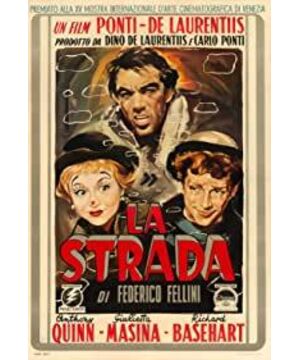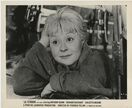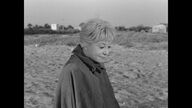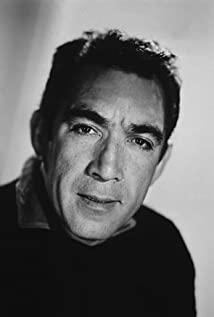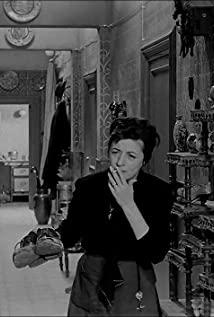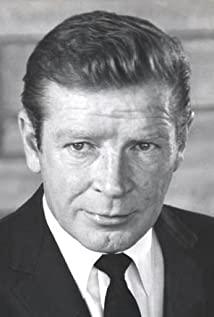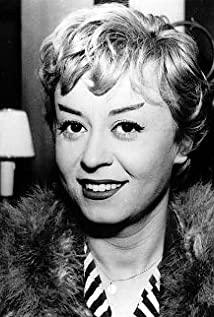After watching "The Great Road", my mood has been gray, I want to cry, and I feel very sad. The Jessomina in the movie seems to have existed in real life, but really died, which makes people feel sad from the bottom of their hearts.
I first watched Woody Allen's "Once Upon a Time in Stardust" and knew that this film was a tribute to "Eight and a Half", so I looked for "Eight and a Half" to watch, I couldn't understand it, it didn't resonate, it was chaotic. At the same time, the art museum also released "Sweet Life", so I thought, this director must be very good, although I can't understand it, I can't easily give up and not watch his works.
So I found this "The Great Road" and watched it with the mentality of trying. As a result, it got out of hand. I kept watching, unwilling to pause, and my eyes were almost fixed on the heroine (I was already fascinated by this elf-like woman). Seeing her whimpering before she was dying, I felt very sad, so I hid in the company bathroom and cried for a while. I love this movie, love the heroine, and at the same time be conquered by Fenelli. Although I can't see anything professional, the emotional resonance and the intuitive feeling make me very sure of the greatness of this work.
The elf Jessomina was born in poverty and was half "sold" by her mother to the wandering entertainer Zambano, as both a servant and a bed partner. The elf is very pitiful, just like that, in the smelly car, he was stupefied and possessed. What can she do to resist? She could only cry. She ran away and saw a lot of beautiful things, and that short beauty seemed to light up her life. Only during the time of running away, she was free, without burden, without worry.
Jesomina's life was completely involuntary. First sold, then wandering, forced to be cattle and horses, possessed, beaten, thrown down, captured, abandoned, and finally died alone and sad. She is not afraid of the hardships of life (takes off the coat and shoes that Zambano gave her when she runs away, and gets back her tattered cloak and rotten shoes), and she can maintain goodness and integrity in extreme poverty (refusing to steal the silverware of the nuns). The pain she felt was that she was useless, that no one needed her, let alone that anyone would love her. She is fascinated by music, and she blows a melody with her heart, which is nothing more than a little sustenance in the pain. She once hated Zambano, but after hearing what the fool said, she suddenly became detached. The fool said that the stone also has its own function and value... If there is no value, then the stars in the sky are meaningless, and everything is meaningless? Jesomina held the small stone and admired the stone like a diamond, full of holy emotions. The light on her face was like that of the Virgin Mary. A fool's words, like the hand of God, lead her to forgiveness, love, and mercy. But after Zambano accidentally beat the fool to death and escaped, the newly raised world collapsed in an uproar, as if someone who had just seen a ray of light was suddenly thrown back into the endless darkness. People without hope and light cannot live. Maybe Jesomina chooses the path of death silently. Fellini's greatness is to create the first uplift and the downside, similar to the return of the dying person's light, and the momentary hope makes the final tragedy so unbearable and so desperate.
I find Jesomina miserable, but Zambano is even more miserable in a human sense. In fact, Zambano is not particularly bad to Jessomina, and people are not evil. His sadness lies in his poverty and numbness (simple mind and developed limbs). Poverty forced him to always think about making a living. Long-term living in the open air made him dull and numb, rude and alcoholic, and did not know what beauty was; and because he was uneducated, lacked in thinking, and had a low self-esteem, he didn't like Jesomina's practice of singing. No. (for fear that she will surpass him and receive more praise than him), can't stand the fool's ridicule; he lacks love (avoids mentioning his parents' hometown), so that he does not understand the love of others, and even more does not understand Love. For a few moments, he seemed to be able to unite with Jesomina, and he almost felt happy, but he brutally killed this possibility, maybe deep down he didn't believe it and felt that he couldn't have it. Love. His views on women, like eating and sleeping, are purely instinctive (he hooked a woman with money in a tavern and left Jessomina for days). It was only after he knew that Jesomina was dead that he had tears for the first time, a sense of pain, and the emotion of being a human being. But it was too late, at least Jesomina had hoped, loved, and Zambano lost everything at the same time when he "turned back into a human".
The saddest thing is that this kind of human tragedy is not only limited to the era at that time, but transcends time and space. Now that people are rich, they are still walking dead, they still don’t understand love, they are still rude and numb, they still don’t think or perceive, and they still stay away from pure and beautiful things. Who is to blame? have no idea. It's just because I don't know that I can't help but feel so sad.
View more about La Strada reviews


